New Ventura County SealLast November I wrote about the Ventura County Board of Supervisors' subcommittee tasked with redesigning its county seal (cancel-culture-in-california-father-junipero-serra-the-latest-target.html). The current seal included an image of the Mission San Buenaventura and its controversial founder, Father Junípero Serra. A faction within the community favored the removal of these images since, in their view, they represent symbols of oppression of the native peoples. On May 24th the Ventura County Board of Supervisors voted to approve a new county seal which did not include the images of Father Serra or the local mission, https://www.vcstar.com/story/news/2022/05/25/new-ventura-county-seal-features-channel-island-no-mission/9857829002/ Interestingly, the new seal doesn’t depict images of the original inhabitants to the area or any other images on the previous seal. The removal of the controversial images seemed to have been a foregone conclusion from the start. There was no clear consensus within the subcommittee or among the public about the county seal’s redesign. The new county seal shows an image of the Channel Islands along the coast of Ventura County. It appears that the County Board of Supervisors took the easy way out and adopted a new seal which wouldn’t offend anyone. This won’t end the controversy surrounding Father Junípero Serra or the Spanish Mission system in Ventura County. They are important features of California history and should not be erased. We need to own our history, for better or worse, learn from it, and bring in the perspectives of all those impacted by it. Old Ventura County SealIf you enjoy reading this type of commentary please subscribe to my blog and tell a friend. You will receive an email notification when new blogs are posted. The email will come from the site’s email: armchairamerican1776 @gmail.com.
Thanks, Armchair American
0 Comments
Select Committee Approved to Investigate Capitol Riot: On June 25, 2021 the House of Representatives approved legislation to create a select committee to investigate the January 6th Capitol Riot. Only two Republicans voted in favor of the legislation, Liz Cheney and Adam Kinzinger. The select committee will have eight members selected by Speaker of the House Nancy Pelosi, and five members selected by House Minority Leader Kevin McCarthy. The committee will have subpoena power to order witnesses to testify. The committee’s main task is to investigate “the facts, circumstances and causes relating to the January 6, 2021 domestic terrorist attack”. The committee is also charged with looking into the law enforcement and government response to the storming of the Capitol and the factors that fomented such an attack. The committee has no set end date to report its findings, conclusions and recommendations for preventing such attacks in the future. Pelosi Announces Her Picks for the Select Committee: On July 1st, Nancy Pelosi announced that she had picked the following eight Representatives for the committee: Bennie Thompson (D-Mississippi), selected as Chairman of the committee. Adam Schiff (D-California) Jamie Raskin (D-Maryland) Zoe Lofgren (D-California) Pete Aguilar (D-California) Elaine Luria (D-Virginia) Stephanie Murphy (D-Florida) Liz Cheney (R-Wyoming). This is the most surprising pick. But upon closer inspection, maybe not. Liz Cheney was ousted from her Republican leadership position for criticizing former President Donald Trump for his lies about the stolen election and his role in the Capitol riot. McCarthy Announces His Picks for the Select Committee: On July 19th, Kevin McCarthy announced the following five GOP nominees to the Democrat led select committee: Jim Banks (R-Indiana), ranking member. Rodney Davis (R-Illinois) Jim Jordan (R-Ohio) Kelly Armstrong (R-North Dakota) Troy Nehls (R-Texas) Pelosi Rejects Two of McCarthy’s Picks: Today (July 21, 2021) Nancy Pelosi rejected two of Kevin McCarthy’s picks, Jim Jordan and Jim Banks. Pelosi saw these two Trump loyalists as impediments to the integrity of the committee’s investigation. She is probably correct, but she has handed the Republicans ammunition to their claim that the committee will lead a partisan attack on Trump and his supporters in an attempt to damage the Republican brand. To that I say that the Republicans had their chance for a bipartisan commission, but they rejected it in the Senate. It is no surprise that McCarthy slammed Pelosi’s move. "Unless Speaker Pelosi reverses course and seats all five Republican nominees, Republicans will not be party to their sham process and will instead pursue our own investigation of the facts," McCarthy said. Democrats have pledged to move forward with the committee’s work, and the first hearing will begin next week. Stay tuned. Capitol Security Six Months Later: This past weekend the metal fencing and concrete barriers that encircled the Capitol were removed. The Capitol grounds are now open again to visitors and pedestrians, but the Capitol building remains closed to the public. The House passed a $1.9 billion security bill in May to strengthen the Capitol building, add additional surveillance, and other measures. The Senate Democrats have introduced their own version which includes additional funding to aid Afghans who supported US efforts in Afghanistan and COVID protections for the Department of Defense. The price tag for this proposal is $3.7 billion and is unlikely to get much Republican support. On-Going Investigation: To date approximately 550 people have been arrested for taking part in the Capitol riot. Charges for those arrested include unlawful entry, vandalism, conspiracy and assault. So far twenty people have plead guilty, mainly to misdemeanors, but only three have been sentenced. The most serious being Paul Hodgkins from Florida, who pleaded guilty to a single felony count of obstruction of an official proceeding before Congress. Mr. Hodgkins was sentenced this month to eight months in prison.
Law enforcement officials are still trying to identify over 300 suspects who were captured on video at the Capitol on January 6th. If you enjoy reading this type of commentary please subscribe to my blog and tell a friend. You will receive an email notification when new blogs are posted. The email will come from the site’s email: armchairamerican1776 @gmail.com. Thanks, Armchair American The calendar year is half over, and I started this blog a year ago this month. I thought it would be a good time to review some of the major themes that have emerged and to provide a few updates. Last year the country was absorbed by the COVID-19 pandemic and the 2020 presidential election, and many of my blogs focused on these issues. Donald Trump dominated the news cycle which prompted me to write about presidential power, the Supreme Court vacancy, and politics. Trump’s refusal to concede the election to Joe Biden lead to blogs on the Capitol riot, his second Impeachment trial, and the attack on voting rights. The pandemic started in early 2020 and continues to threaten the world for the foreseeable future. Pandemic related blogs focused on face masks, vaccines, public health restrictions and 1st Amendment rights, and how politics permeated the government’s response. No review of 2020 would be complete without mention of the Social Justice movement and extremism is America. My blogs on QAnon, militias, and the Black Lives Matters protests touched on these issues. We are witnessing an explosion of gun violence in this country, and I have written extensively about guns in America. President Biden’s administration has already secured trillions of dollars in COVID relief spending, and is pushing for trillions more for infrastructure spending. Government spending and the threat of inflation will continue to be an interest of mine, as will be the America military’s exodus from Afghanistan after nearly twenty years of fighting. But the news is not all bad, and I am optimistic about the future. So, I will try and inject some lighter fare into my posts. Below I have broken down most of my blog posts into broad categories, with a link to each. Many of these have been updated since I originally posted them, which can be found at the end of the individual blogs. For each category I have summarized the major developments since the original postings. Original Posting Date Blog Title 07-21-2020 Vote 2020. 10-12-2020 The Electoral College. Love it or leave it? 10-18-2020 Millions of Americans have voted, and so have I. 11-22-2020 Tired of politics as usual? I am! 06-28-2021 Voting rights under attack! 07-27-2020 Wear a face mask. Don’t let politics Trump science, Part 1 07-31-2020 Wear a face mask. Don’t let politics Trump science, Part 2 08-08-2020 Are pandemic restrictions violating your 1st Amendment rights? 08-15-2020 Public health should be above politics. Was a line crossed in favor of Black Lives Matter protests? 12-22-2020 All I want for Christmas is a COVID-19 vaccine. 02-28-2021 COVID-19 Vaccine update. J&J vaccine gets emergency use authorization. 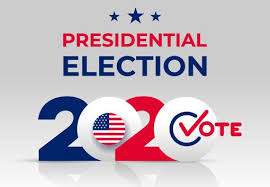 2020 Presidential Election 08-30-2020 A tale of two conventions, part 1. 09-05-2020 A tale of two conventions, part 2. 10-29-2020 Presidential leadership and Donald Trump’s reelection chances. 11-08-2020 Hope triumphed over fear. 12-15-2020 Is the 2020 presidential election finally over? 01-08-2021 Insurrection in America. 01-29-2021 Is the 2nd Impeachment trial of Donald Trump a good idea? 02-16-2021 Donald Trump is acquitted! 06-01-2021 Republicans block formation of a January 6 Capitol riot commission. 04-05-2021 Guns in America, Part 1. More mass shootings and calls for gun control. 04-18-2021 Guns in America, Part 2. The NRA is down, but not out. 05-01-2021 Guns in America, Part 3. Gun laws through the years. 05-12-2021 Guns in America, part 4. Common sense gun reforms. 09-26-2020 The hypocrisy of Senator Mitch McConnell. 12-05-2020 The new conservative court takes on religious freedoms during pandemic. 10-06-2020 Is Joe Biden a Socialist? 01-03-2021 2021 brings hope and challenges. 03-20-2021 $1.9 trillion American Rescue Plan of 2021.  Presidential Authority 09-13-2020 Is the president’s payroll tax deferral a good thing? 01-21-2021 Time to reconsider the presidential pardon?  Extremism  Robinhood 02-08-2021 Robinhood and GameStop: A cautionary tale.  Camino de Santiago Updates Voting Rights: On July 1, 2021 the Supreme Court ruled that the states may impose restrictions on voting, upholding restrictive voting laws recently passed in Arizona. The Court’s majority ruled that the Voting Rights Act of 1965 can be used to strike down voting restrictions only when they impose substantial and disproportionate burdens on minority voters (https://www.nytimes.com/2021/07/01/us/politics/supreme-court-arizona-voting-restrictions.html). In other words, it is constitutional for states to put voting restrictions in place as long as they are only an inconvenience, and do not prevent someone from voting. Writing for the majority, Justice Alito listed the following guideposts for lower courts to follow in evaluating voting restriction cases:
This last guidepost gives powerful ammunition to any state legislature intent on making access to voting more difficult. The Supreme Court’s ruling will make it difficult to oppose voting restrictions being put into place in many GOP governed states. It will be interesting to see if this ruling will hamper the Department of Justice’s pending lawsuit against the new Georgia voting law. COVID-19 Pandemic: The pandemic is far from over, but you wouldn’t know it by walking down the streets of most American cities. The world recently surpassed the grim milestone of 4,000,000 deaths due to COVID-19. This was the official death toll, but the actual death toll is certainly much higher. Approximately 25% of the world’s adult population has received at least one shot of COVID-19 vaccine, mostly in the rich countries. Less than 1% of the adults in low- income countries (Africa, Asia, South America, Central America) have received a single shot of the vaccine.
On June 15th the U.S. surpassed 600,000 deaths due to COVID-19, and the death rate continues to climb, mainly among those who have been unvaccinated. President Biden missed his July 4th goal of getting 70% of eligible adults vaccinated with at least one shot. As of this writing just under 68% of adults have received at least one shot. COVID-19 cases have come down significantly in the U.S. over the past few months due to the highly effective vaccines. As a result, most areas of the country have dropped all COVID-19 related restrictions. Mask mandates, social gathering restrictions, and indoor business restrictions have disappeared, and domestic travel has returned with a vengeance. But this rosy picture hides vast geographic disparities which show a significant rise in hospitalization rates and deaths due to COVID-19 in regions with low vaccination rates. Rural areas, which tend to be conservative, have seen a recent rise in COVID-19 cases. Low vaccination rates make these populations vulnerable to the highly contagious Delta variant. Arkansas and Missouri are seeing the worst outbreaks, followed by Florida, Nevada, Wyoming, and Utah. But unvaccinated people are driving increases in COVID-19 cases even in areas with high vaccination rates. This corresponds with the lowering (or elimination) of COVID restrictions and the emergence of the Delta variant. I live in a county north of San Francisco, where 68% of eligible people are fully vaccinated and another 8% are partially vaccinated. But there has been a troubling uptick in COVID-19 cases and hospitalizations, even before the full effects of 4th of July gatherings are felt. The vast majority of the hospitalized COVID-19 patients are unvaccinated. Contact tracing has shown that most of the current COVID-19 cases in my county are being fueled by social gatherings and leisure time activities, with the highest rates in the 18-32 age group. Vaccine hesitancy continues to align significantly with party affiliation. According to a recent Washington Post-ABC News poll, 6% of Democrats said they are not likely to get vaccinated, compared with 47% of Republicans, including 38% of Republicans who said they definitely will not get the vaccine https://www.washingtonpost.com/politics/post-abc-poll-biden/2021/07/03/54e95b6e-db43-11eb-8fb8-aea56b785b00_story.html. First detected in India, the Delta variant is estimated to be 60% more transmissible than earlier variants. The Delta variant has rapidly spread around the globe and is currently driving COVID-19 outbreaks in African, Asia, Australia and South America. The CDC has determined that the Delta variant is now dominant in the U.S. and is spreading rapidly in unvaccinated populations. Researchers in France, Israel and Britain have shown that a single dose of the Pfizer or AstraZeneca vaccine is largely ineffective against the Delta variant. Therefore, delaying the second shot in order to vaccinate more people is no longer an effective option. New variants, like the Lambda variant spreading rapidly in South America, provide more reason to quicken the pace of vaccination around the world. The unvaccinated population provides a breeding ground for new variants, and short of shutting down the world, vaccines are our major defense. Pfizer made news last week by announcing that it would seek FDA approval for a COVID-19 booster vaccine. The CDC and NIH strongly rejected the need for vaccine boosters at this time, refuting the claims made by Pfizer. But many in the scientific community acknowledge that it is not a matter of if, but when booster shots will be needed. Preliminary research out of Israel suggests that the Pfizer vaccine is less effective against the Delta variant and there is a decline in antibody levels against the virus over time. I think that we should be prepared for the eventuality of booster shots, but we need to think through the ethical issues involved. Is it ethical to provide booster shots to fully vaccinated people in wealthy countries when the vast majority of people in poorer countries remain unvaccinated? Israel plans to offer booster shots of the Pfizer vaccine to adults with weakened immune systems, and Britain has announced plans to provide booster shots to its vulnerable populations and front-line workers. It makes sense to protect our most vulnerable, but it seems premature to do so when there is a limited supply of vaccines. The FDA warned this week that the Johnson & Johnson COVID-19 vaccine can lead to an increased risk of Guillain-Barré syndrome, a rare neurological condition. The incidence is very rare, and the benefits of this highly effective vaccine outweigh the risks. But I fear that this warning from the FDA will further diminish the acceptance of this much needed vaccine. The vast majority of hospitalizations and deaths due to COVID-19 are occurring in unvaccinated people. The evidence is overwhelming. Unvaccinated people pose a risk to themselves and to vulnerable populations who have been vaccinated. No vaccine is 100% effective and breakthrough infections do occur. The incidence of COVID-19 is eleven times higher in unvaccinated people than vaccinated ones. If that isn’t an incentive to get vaccinated, I don’t know what is. Encourage everyone you know to get vaccinated. Regarding the use of face masks, do like I do; don’t leave home without one. More updates in my next post. If you enjoy reading this type of commentary please subscribe to my blog and tell a friend. You will receive an email notification when new blogs are posted. The email will come from the site’s email: armchairamerican1776 @gmail.com. Thanks, Armchair American |
AuthorThe Armchair American. Archives
November 2024
Categories
All
|
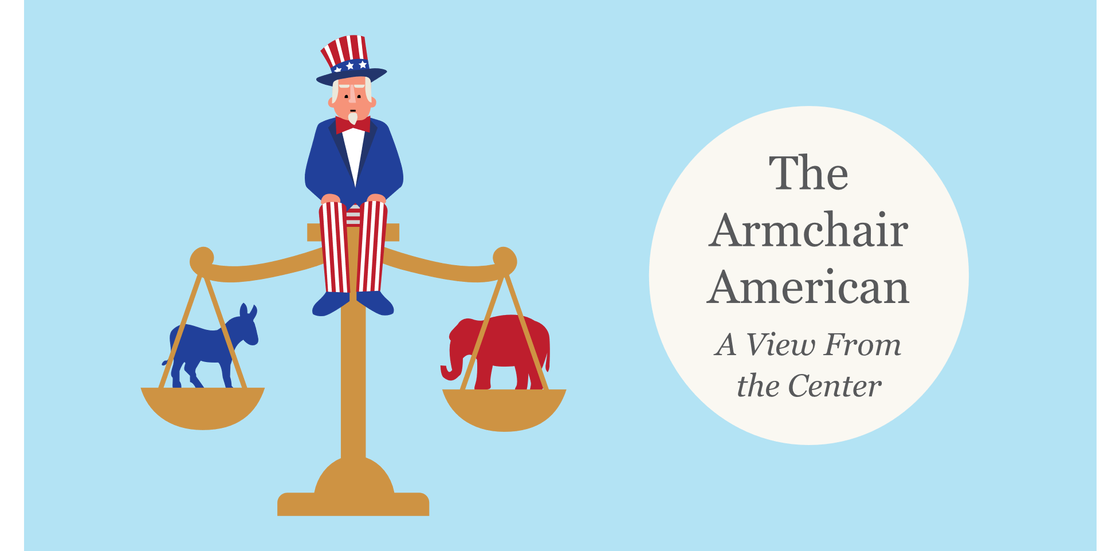


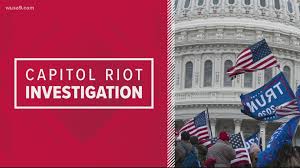
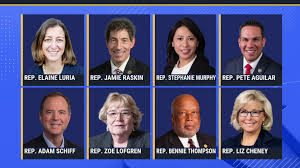
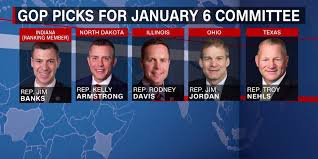
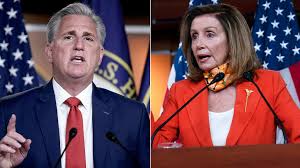
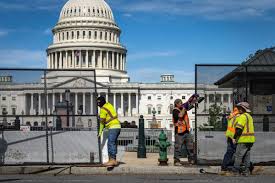
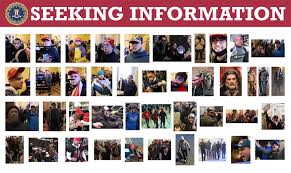

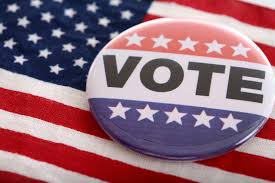

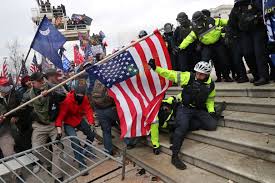

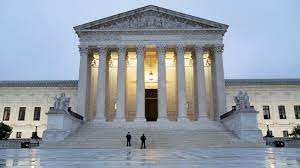
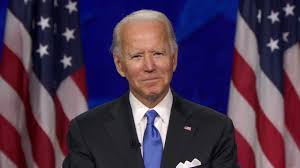
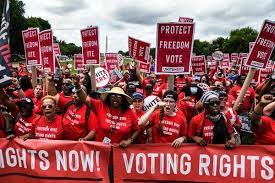
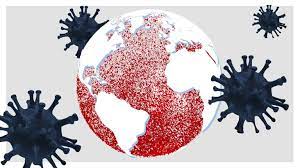
 RSS Feed
RSS Feed